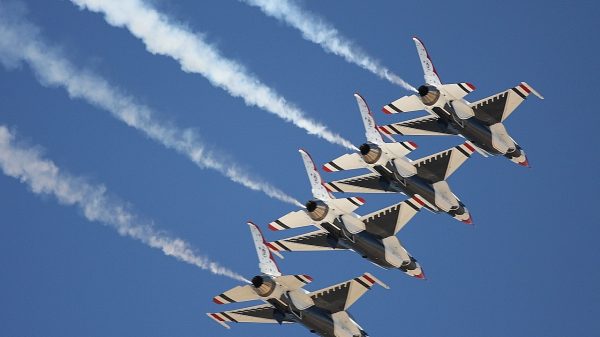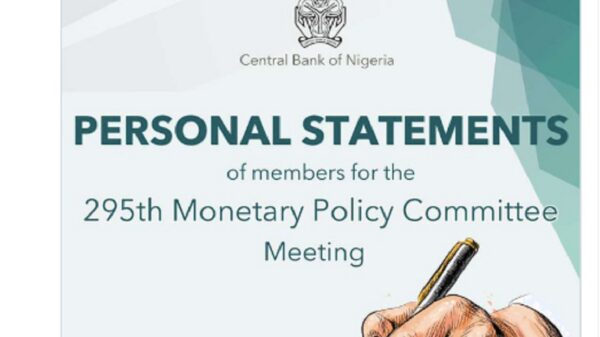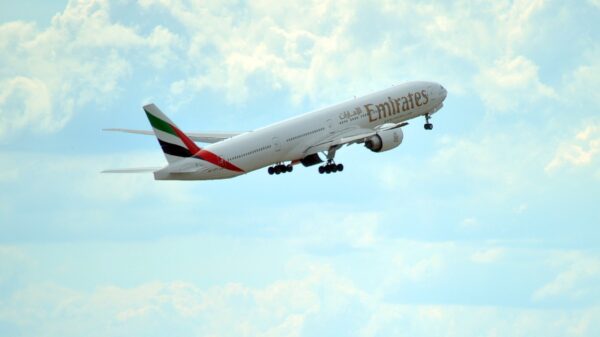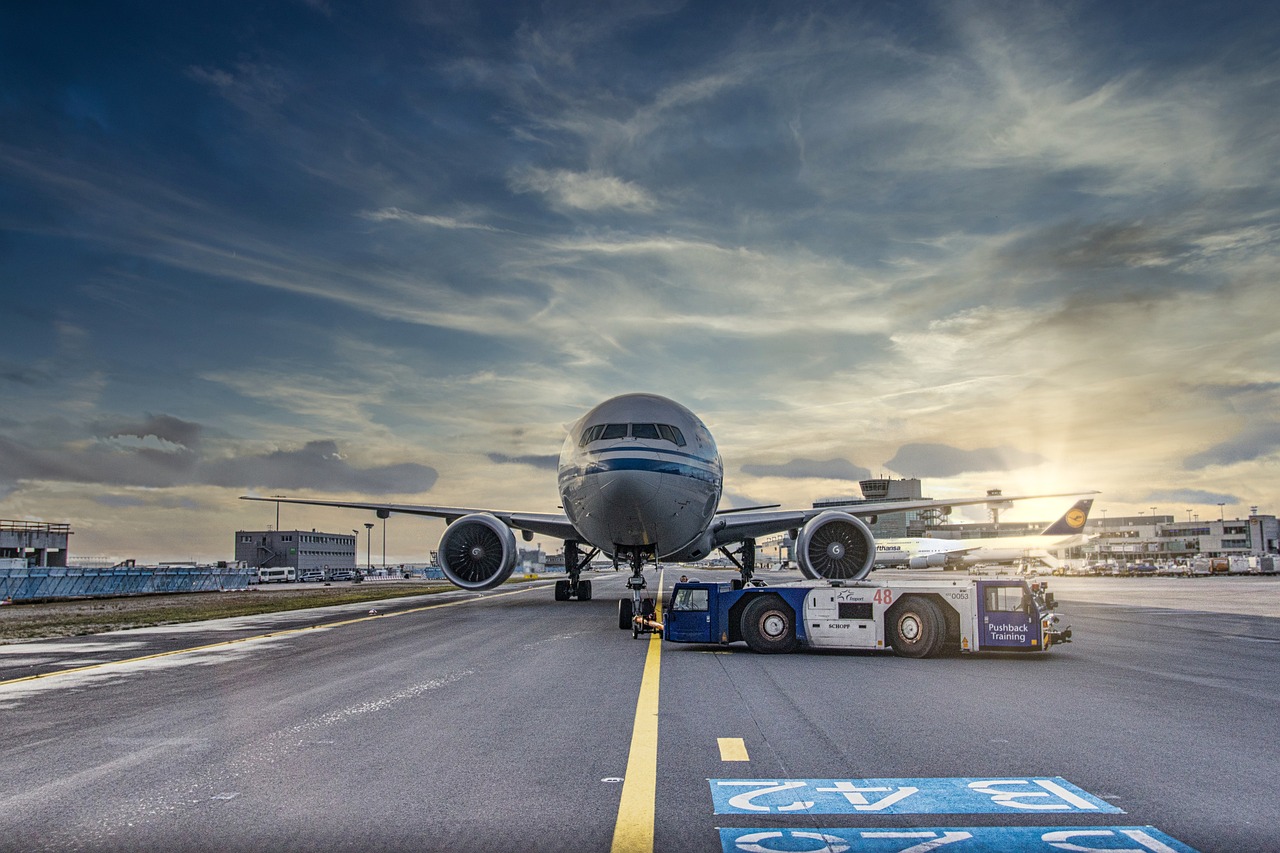In 2024, Nigerian airlines find themselves in a tight spot, facing a colossal $3 billion bill for overseas aircraft inspections. The root cause? The depreciation of the national currency, the naira. As the value of the naira dwindles, the costs of maintaining aircraft abroad skyrocket, leading airlines to ponder the closure of less lucrative routes.
This article takes a deep dive into the challenges confronting Nigerian airlines, the repercussions of currency depreciation, and potential remedies, shining a spotlight on the imperative need for local maintenance centers.
Currency Depreciation Takes a Toll
The devaluation of the naira has created a financial crunch for Nigerian airlines. Compared to 2015, the costs of overseas aircraft maintenance have surged by a staggering 200%.
James Ominyi from the Aero Contractors Maintenance, Repair, and Overhaul (MRO) Division sheds light on the struggles airlines face due to substantial expenses in foreign aircraft maintenance.
Operational Setbacks and Grounded Aircraft
The current count of operational aircraft has dwindled to approximately 43, with some undergoing maintenance abroad. Foreign exchange shortages have led to the grounding of aircraft scheduled for maintenance, impacting the profitability and efficiency of Nigerian airlines.
Contemplating Route Closures
As airlines grapple with a diminishing number of active aircraft, they are contemplating the closure of certain routes. Reports from ThisDay indicate that several airlines are evaluating the viability of their routes in response to ongoing challenges.
Route closures are viewed as a strategic move to focus on more profitable routes amid financial constraints.
The Role of Maintenance Facilities in Nigeria
Presently, Nigeria has two maintenance facilities—Aero Contractors and 7Star—but they face limitations in maintaining all categories of aircraft.
The scarcity of foreign exchange prevents grounded aircraft from undergoing local maintenance, leading to fleet downsizing. James Ominyi emphasizes the need for more facilities capable of handling various types of aircraft.
Local Maintenance as a Viable Solution
Nigerian airlines, including Max Air, Allied Air, United Nigeria Airlines, and Rano Air, are exploring avenues to conduct maintenance locally. Some airlines have made payments in naira to the Central Bank of Nigeria, awaiting foreign exchange allocation.
Haruna Abdullahi highlights the potential benefits of local maintenance, emphasizing cost savings and reducing the pressure on airlines to acquire dollars.
Government Steps In
The government, represented by Festus Keyamo, the Minister of Aviation and Aerospace Development, is actively engaging with the Airline Operators of Nigeria (AON). Measures, including subsidies and proposals to reduce the financial burden on airlines, are being considered.
The government’s involvement aims to support the struggling aviation sector and ensure the sustainability of air travel in Nigeria.
Finding Solutions Amidst Challenges
Nigerian airlines are navigating significant challenges due to currency depreciation, resulting in soaring expenses for overseas aircraft checks. The closure of routes and operational setbacks underscore the urgent need for solutions.
The establishment of more local maintenance centers, coupled with government intervention and subsidies, could provide a lifeline for the aviation industry in Nigeria. As the industry grapples with these challenges, stakeholders must collaborate to find sustainable solutions, ensuring the continued growth and efficiency of Nigerian airlines.
Economic Challenges Propel Ground Handling Companies to Adjust Rates in Nigerian Aviation
Against the backdrop of economic challenges, including the continuous depreciation of the naira and a steep rise in inflation, ground handling companies in the Nigerian aviation industry are gearing up to adjust their handling rates for domestic airlines.
The Aviation Ground Handling Association of Nigeria (AGHAN), representing these companies, recently engaged in discussions with Capt. Chris Najomo, the acting Director-General of the Nigeria Civil Aviation Authority (NCAA), in a meeting held in Abuja.
The Concerns and Proposed Changes
Expressing their concerns about the impact of the unstable economy on their businesses, AGHAN executives outlined their worries in a letter to the NCAA. Dated January 26, 2024, the letter, titled “Proposed Increase In Domestic Safety Handling Rate in Nigeria,” suggested new rates for different types of aircraft.
The proposed rates included N400,000 per flight for a Boeing 737 or its equivalent, N250,000 for CRJ or Embraer aircraft, and N150,000 for Dash 8 airplanes. AGHAN recommended March 31, 2024, as the start date for the new rate regime, seeking approval from the NCAA for its full implementation.
Comparing Past and Present Rates
A glance back at rates before the current proposal reveals a significant increase. In the 2021 review conducted by the NCAA, rates were notably lower, with N70,000 for B737, N50,000 for CRJ and Embraer, and N25,000 for Dash 8 or their equivalents. This highlights the impact of the continuous depreciation of the naira on the aviation industry.
Challenges Faced by Ground Handling Companies
AGHAN emphasized in its letter that all Ground Support Equipment (GSE) used by these companies for aircraft handling is entirely imported. The letter lamented the consistent decline of the naira in the foreign exchange market over the past 24 months, adding to the financial burdens of these companies.
Domestic Flight Ticket Pricing
The letter also drew attention to the fact that, on the domestic front, the prices of flights between Lagos and Abuja range from N90,000 to N150,000 for an economy class ticket. Business class tickets, depending on the airline, class of the ticket, and the period of booking, vary between N180,000 to N250,000 for air travelers.
Conclusion: Anticipating Changes in Airline Service Rates
As we brace ourselves for the impending changes in airline service rates, it is crucial to consider the broader economic challenges faced by ground handling companies in Nigeria.
The proposed rate adjustments reflect the industry’s response to economic realities, and the approval by the NCAA will likely have far-reaching consequences for both the aviation industry and travelers. Stay informed as these developments unfold, and we’ll keep you updated on the latest in this evolving story.


























































You must be logged in to post a comment Login